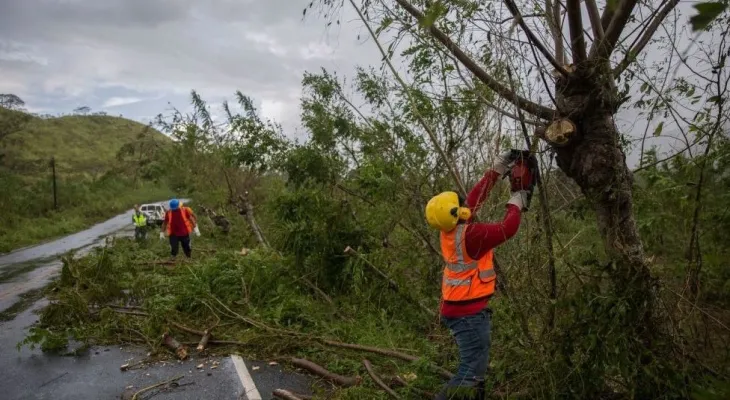Search here
Newspaper
Search here

Arab Canada News
News

Published: September 24, 2022
Power outages cut off hundreds of thousands of people in Canada, as Hurricane Fiona reached the country’s Atlantic coast.
Parts of Nova Scotia, Prince Edward Island, and New Brunswick are witnessing heavy rains and winds reaching speeds of 148 km/h (92 mph).
The Canadian Hurricane Center warned before the hurricane's arrival that Fiona could be a “severe historic event,” with expected power outages and flooding.
At least eight people died as Fiona crossed the Caribbean Sea area.
Canadian Prime Minister Justin Trudeau said on Friday, “It’s going to be bad.”
He added, “We encourage everyone to stay safe, and follow the instructions of local authorities over the next 24 hours.”
Tropical storm warnings were issued for the Atlantic-facing provinces of Nova Scotia, Prince Edward Island, Newfoundland, New Brunswick, and parts of Quebec.
Up to 10 inches (25 cm) of rain could fall on the eastern part of the country, increasing the risk of flash floods.
In Nova Scotia, shelter areas in Halifax and Cape Breton were prepared ahead of the storm’s arrival.
Amanda MacDougall, mayor of Cape Breton Municipality, said, “We’ve been through this kind of events before, but my fear is that it wasn’t to this extent.”
She added, “The effects will be large, real, and immediate.”
It is rare for severe hurricanes to hit Canada, as storms lose their energy once they reach the cold northern waters. However, the pressure in the area is expected to be unusually low with Hurricane Fiona’s arrival, allowing for a stronger storm.
The last time Nova Scotia was hit by a tropical hurricane was in 2003, when Hurricane Juan struck, a Category 2 storm that claimed two lives and caused severe damage to buildings and vegetation.
Meteorologist Bob Robichaud warned on Friday afternoon that Fiona would be larger than Juan, and stronger than Hurricane Dorian (2019) which also reached Nova Scotia’s shores.
Robichaud said, “It will definitely be a severe historic event for Canada’s Atlantic coastal regions.”
Heavy rains and winds struck Bermuda early Friday morning, forcing schools and offices to close before the hurricane headed north.
Hurricane Fiona had already caused chaos in Puerto Rico and the Dominican Republic last week, with many still without electricity or running water.
Among up to four victims in Puerto Rico was a sick infant, four months old, whose mother could not reach the hospital due to closed roads.
Florida also faces a hurricane threat after a separate tropical hurricane formed in the Caribbean Sea.
Tropical Depression “Nine” is in its early stages and is following a path that could take it to Florida next week, according to the US National Hurricane Center.
Comments